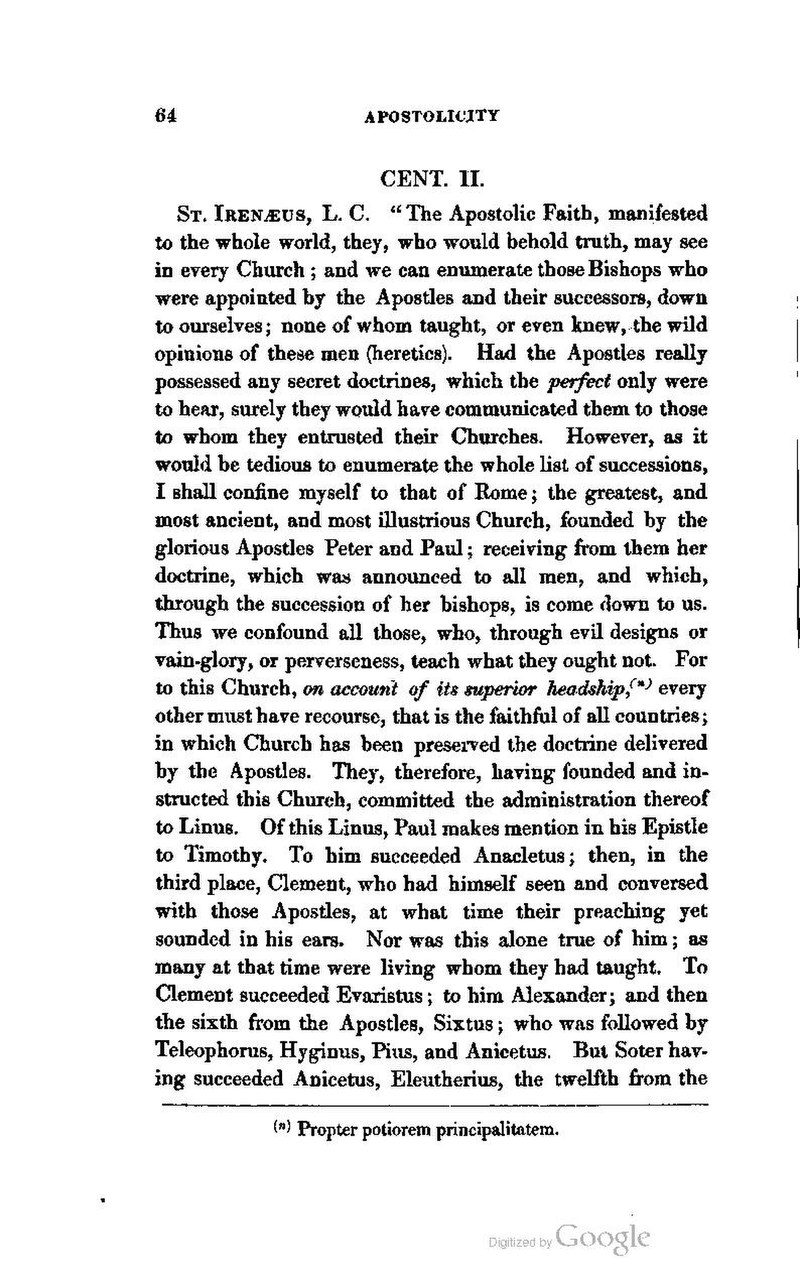CENT. II.
St. IRENÆUS, L. C. “The Apostolic Faith, manifested to the whole world, they, who would behold truth, may see in every Church ; and we can enumerate those Bishops who were appointed by the Apostles and their successors, down to ourselves; none of whom taught, or even knew, the wild opinions of these men (heretics). Had the Apostles really possessed any secret doctrines, which the perfect only were to hear, surely they would have communicated them to those to whom they entrusted their Churches. However, as it would be tedious to enumerate the whole list of successions, I shall confine myself to that of Rome; the greatest, and most ancient, and most illustrious Church, founded by the glorious Apostles Peter and Paul; receiving from them her doctrine, which was announced to all men, and which, through the succession of her bishops, is come down to us. Thus we confound all those, who, through evil designs or vain-glory, or perverseness, teach what they ought not. For to this Church, on account of its superior headship, every other must have recourse, that is the faithful of all countries; in which Church has been preserved the doctrine delivered by the Apostles. They, therefore, having founded and instructed this Church, committed the administration thereof to Linus. Of this Linus, Paul makes mention in his Epistle to Timothy. To him succeeded Anacletus; then, in the third place, Clement, who had himself seen and conversed with those Apostles, at what time their preaching yet sounded in his ears. Nor was this alone true of him; as many at that time were living whom they had taught. To Clement succeeded Evaristus; to him Alexander; and then the sixth from the Apostles, Sixtus; who was followed by Teleophorus, Hyginus, Pius, and Anicetus. But Soter having succeeded Anicetus, Eleutherius, the twelfth from the
